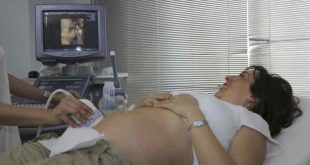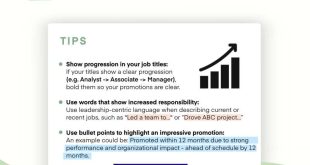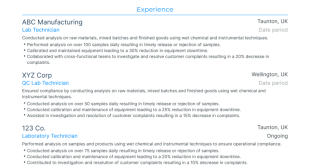Neonatal Nurse Practitioner Schooling Years – The examples and perspectives in this article are drawn primarily from the United States and do not represent a worldwide perspective on the topic. You can improve this article, discuss the issue on the talk page or create a new article accordingly. (January 2020) (Learn how and what to delete this message template)
Neonatal Nurse Practitioner (NPP) – Minimum of 2 years of experience as a registered bedside nurse in a Level III NICU, willing to practice across the continuum, providing primary care, acute, chronic, and intensive care for newborns, infants, and toddlers up to 2 years of age . NNPs working in neonatal intensive care (NICU) settings select and perform clinically indicated invasive advanced diagnostic and therapeutic procedures. In the United States, a board-certified neonatal nurse practitioner (NNP-BC) is an APRN who has completed college education at the master’s or doctoral level and is board-certified in neonatology. The National Association of Neonatal Nurse Practitioners (NANNP) is the national association representing neonatal nurses in the United States. Certification is administered by the National Certification Corporation (NCC) for obstetrics, gynecology, and neonatal nursing specialties.
Neonatal Nurse Practitioner Schooling Years
The first modern NICU opened in 1960 at Yale-New Hav Hospital under the auspices of Louis Gluck, a pioneer in the pediatric specialty of neonatology.
Neonatal Nurse Practitioner Degree Online| Oduglobal
Dr. Gluck’s NICU concept showed better outcomes for sick and premature babies and led to the emergence of NICUs across the country in the late 1960s.
Most NICUs are located in large university settings with patient management provided by neonatologist-supervised medical interns and residents. To meet the needs of this vulnerable population, nursing roles have expanded to include tasks previously assigned to physicians, such as initiating intravenous access and phlebotomy.
In 1965, the first nursing program in the United States was developed at the University of Colorado to train pediatric nurses in primary care.
By the 1970s, the NICU had become an integrated medical service in many major teaching hospitals across the country, providing effective management of premature and sick infants and reducing neonatal mortality.
Highest Paying Nursing Specialties
Neonatal transport services were established to move newborns from their birth home to a nearby NICU, allowing the NICU nursing role to expand as nurses filled these new positions. Guidelines published by the American Nurses Association (ANA) in 1975 set the standards for the NNP program until NANN published the Educational Standards and Guidelines for NNP Programs in 2002.
National certification for NNPs was initiated in 1983 by the NAACOG Certification Corporation, now the National Certification Corporation for Obstetrics, Gynecology, and Neonatal Nursing (NCC).
In the 1990s, states began requiring national certification or a master’s degree as practical evidence for NNP.
In the early 2000s, nurses lobbied to assign privileges to fully activate their provider status. In 2007, a chapter of the National Association of Neonatal Nurses (NANN) was established as the only national association dedicated exclusively to NNPs.
America’s Nurses: Meet Neonatal Nurse Jody S
Today, neonatal APRNs are recognized as professional providers and have become an integral part of the neonatal health team at all levels of care.
To take the first step toward becoming a neonatal nurse, a registered nurse (RN) must earn a Bachelor of Science in Nursing (BSN). You will need at least two years of experience in a neonatal care unit to enter a master’s or doctoral program.
When applying for a master’s and/or doctoral degree, you must be from an accredited school of nursing specializing in neonatology. These programs can last from two to three years. The classes taken will focus on neonatology, as well as a variety of core classes. After completing the program, you must apply to take the NNP exam through the National Certification Corporation (NCC) for national certification. After passing this exam, there is another state certification exam to pass. These certificates must be renewed every few years in order to continue the practice of becoming a UNT.
After training at the graduate or doctoral level, most states require NNPs to be certified by an approved certifying body. Board certification must be maintained by earning continuing nursing education credits. In the United States, board certification is provided through the National Certification Corporation (NNP-BC assigns credentials). The certification exam consists of 175 questions and a three-hour time limit. These questions cover topics related to pharmacology, general management, general assessment, professional issues and most of the questions are related to embryology, physiology, pathophysiology and systems management.
Alverno College Launches Two New Nurse Practitioner Programs
Neonatal nurse practitioners provide care to newborns with a wide range of acuities (levels of illness) and specialized care from prematurity, infections, genetic conditions, heart disease, surgical diagnoses, breathing problems, and other illnesses. NNPs work primarily in hospital settings in sound nurseries, special care nurseries, NICUs, and delivery rooms. Neonatal nurses can work in an office or in private practice. Their specialized training allows them to provide personalized care for newborns, from mothers and healthy babies to critically ill babies. NNPs typically work in partnership with neonatologists and/or pediatricians, but (in most states) are licensed independent providers who can diagnose and treat conditions. NNPs have prescription authority and can prescribe medications as needed in the neonatal population (in most states).
Working hours of neonatal nurses may vary. They usually work 40 hours a week, but may have to work overtime if there is another nurse depending on the patient’s condition and admission. Shifts can be five eight hour shifts, four hour shifts or 3 twelve hour shifts per week. Neonatal nurses may have the opportunity to work while on vacation.
Neonatal nurses work with newborns on a daily basis. NNPs take vital signs and monitor newborns closely because their condition can deteriorate very quickly. Neonatal nurses perform, order, and analyze tests on a newborn baby. NNPs also create treatment plans and advocate for the delivery of babies. Neonatal nurses must be physically fit. The NNP moves continuously for long periods of time and reacts quickly in an emergency.
The salary of a neonatal nurse depends on the job and the demand in the region. People with less experience earn less than people with decades of experience. Education, skills and certifications can also play an important role in the salary paid. By 2022, the median salary in the United States will range from $109,000 to $150,000.
Neonatal Intensive Care
Employment in this field is expected to grow from 26% to 28% from 2018 to 2028. This increase in employment growth will provide 26,000 jobs.
Neonatal nurses are in high demand. Neonatal nurses make up about 2 percent of the 325,000 licensed nurses, according to 2020 data from the National Certification Corporation (NCC).
The majority of neonatal nurses in the workforce are women. For many years, the race and ethnicity of neonatal nurses was white, second only to Asian ethnicity. The average age for NNP is forty years. Today is Emory University’s 177th Commencement! Following the activities at the Quandrangle, the Nell Hodgson Woodruff School will host an Alumni Recognition Ceremony at 11:00 a.m. in the Emory Student Center. All events are broadcast live.
Emory’s online neonatal nurse practitioner (NNP) program is the only program in the state of Georgia and the closest nursing program in Florida and South Carolina. Our students and alumni benefit from the many neonatal clinics offered by Emory Healthcare and other health systems throughout the state and SE region.
The Importance Of Neonatal Nurse Practitioners
Our NNP master’s degree program is one of the few NNP programs in the country that prepares nurses to practice across the continuum of health care. The program prepares nurses to be advanced practice providers capable of comprehensive assessment, diagnostic evaluation, and symptom and disease management for infants and children two and younger. This area includes health promotion, disease prevention, health care, parenting counseling, education, diagnosis of acute and chronic diseases, and treatment in various health care settings. All aspects of advanced practice are explored through an evidence-based approach, including the roles of educator, researcher, consultant, and advocate. Students complete more than 700 hours of primary, emergency and critical care patient care. The online format means that working nurses don’t have to quit their jobs or move to the Atlanta area to become a neonatal nurse practitioner at Emory University.
Our NNP master’s degree program prepares nurses to become best practice providers of primary, emergency, and critical care for infants and toddlers under two years of age, according to NANNP program standards. Graduates are proficient in attending high-risk births and intensive care units, comprehensive assessment, diagnostic evaluation, symptom and disease management, and discharge coordination. Students’ clinical experience covers all levels of neonatal care
Schooling for nurse practitioner, pediatric nurse practitioner schooling years, family nurse practitioner years of schooling, psychiatric nurse practitioner schooling, family nurse practitioner schooling, neonatal nurse practitioner schooling requirements, psychiatric nurse practitioner years of schooling, general nurse practitioner schooling years, psychiatric nurse practitioner schooling years, neonatal nurse schooling years, neonatal nurse practitioner schooling, nurse practitioner schooling years



